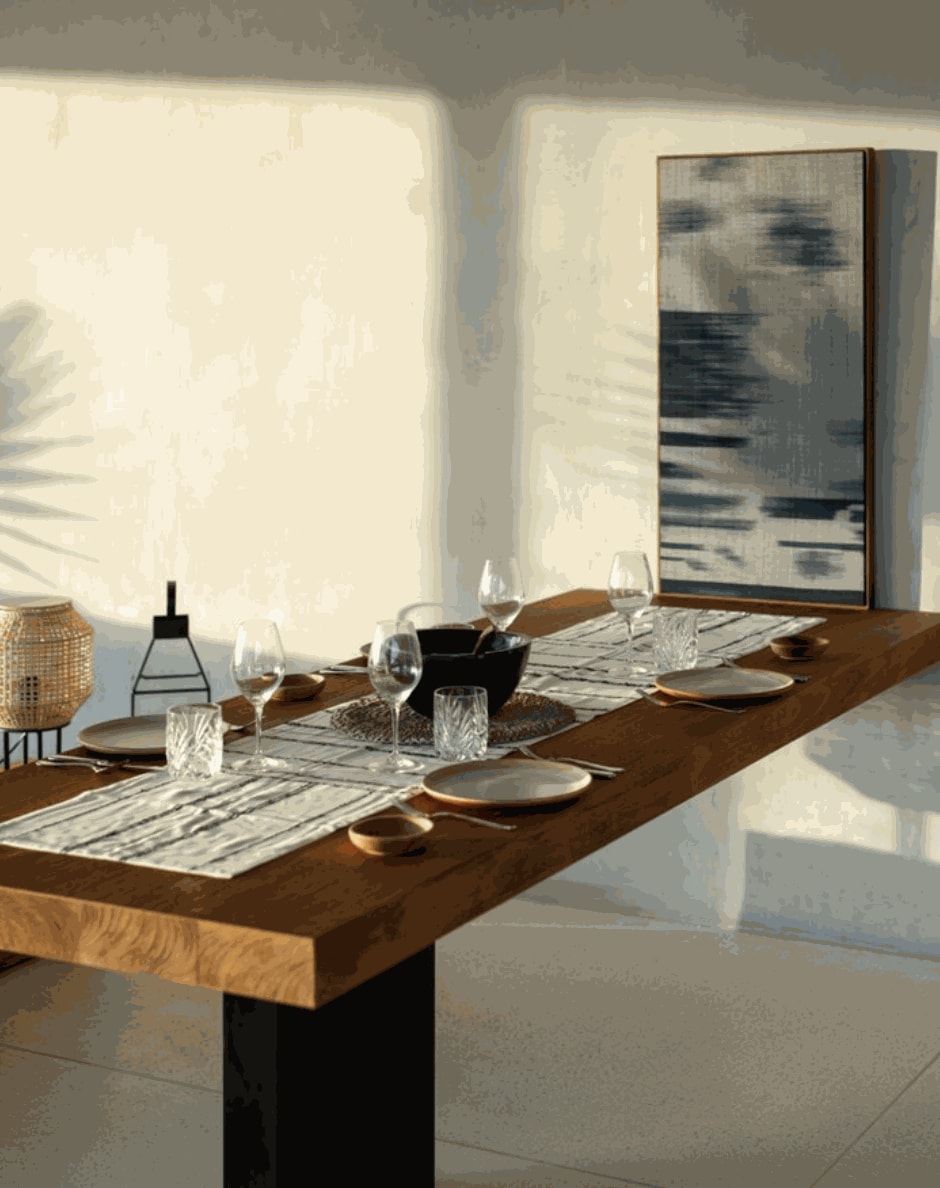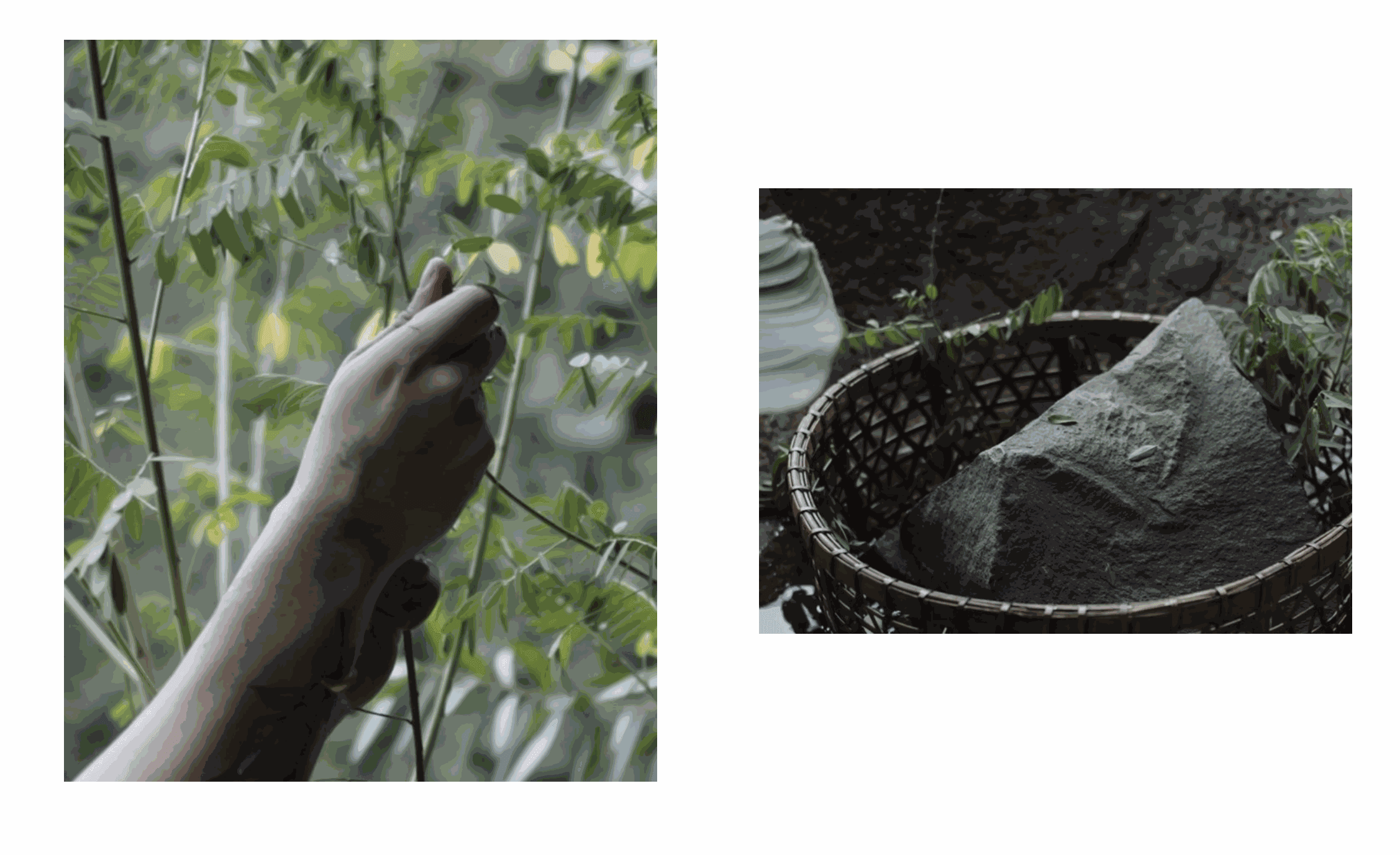On the unexplored west side of Sumba island, a French couple, Evguenia and Fabrice Ivara are working hard to open their labor of love, Cap Karoso. “We both share a passion for craftmanship,” enthuses Evguenia, whose background working in product development for such brands as Louis Vuitton and Dom Perignon has led her to appreciate the know-how of handmade things.

“The most beautiful thing is the gesture that creates the final look of the objects. It is the magic in the hands of the master.”
- Evguenia Ivara
Inspired by the craft traditions of Indonesia, the couple decided to partner with local creatives to design one-of-a-kind pieces for the hotel that would bring guests closer to the country’s heritage. Working alongside Michela Foppiani from the well-known Bali-based Gaya Ceramic, the Ivaras developed beautiful pots for the toiletries, vases, and even cocktail glasses that recall Sumbanese shapes, symbols, and colors. “For me, with ceramics,” says Evguenia, “the most beautiful thing is the gesture that creates the final look of the objects. It is the magic in the hands of the master.”
Hanging on the guestroom walls will be works by another master craftsman: Indonesian artist Alexander Sebastianus Hartanto, who uses Ikat—beloved by the islanders for rituals—for his art pieces. Hartanto learned the long and complicated process of dyeing the threads with indigo leaves and working the traditional loom from a master weaver in East Java. “Again, the beauty of what he does is in the hands,” muses Evguenia.

The theme of “ancient modern”—that is using age-old crafts in new, interesting ways—is carried throughout the property, as seen in the wooden headboards that take local carving traditions and transform them into new contemporary accents.
The villas, each of which is named for an animal, feature a headboard panel that matches its name, such as a rooster, turtle, crocodile, or horse. Instead of aping the local Marapu statues, the hotel’s Java-based interior designers chose to work with the contemporary woodworkers Kalpa Taru to deconstruct Ikat symbols and update the manufacturing process by mixing hand and machine work. The overall effect is sophisticated, intellectual, and very Sumbanese all at once.

